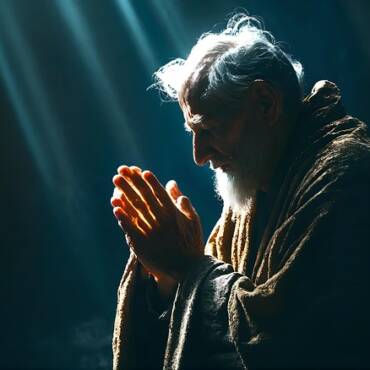How Can a Jew Believe in Yeshua and Still be Jewish?

It depends on who Yeshua* is! The New Covenant presents Him as the Jewish Messiah. (John 1:41, 45, 49, etc.) If He’s not the Jewish Messiah then no one should believe in Him, because His credentials as “Savior of the World” are based on His credentials as the Messiah of Israel. If He is the true Messiah, then it is kosher that I, a Jewish person, believe in Him. And I would be a Jew in good standing with God, even if no one else agreed.
Accepted Credentials?
But let’s say for argument’s sake, that Yeshua is a false Messiah. Even so, I must still be seen as a Jew in the eyes of rabbinical authority. Why? Because believing in a false Messiah does not make any Jew a non-Jew. In 132 A.D./A.C.E., the rebel leader Simon Bar Kochba arose during the Jewish revolt against Rome. Rabbi Akiva (a very famous Rabbi) declared Bar Kochba to be the Messiah, although at the time Bar Kochba had none of the accepted credentials to be the Messiah.
It appeared to be merely Akiva’s pragmatic attempt to unite all Jews against Rome. But no Jewish authority has ever said, “Akiva is no longer Jewish for believing in a false messiah.” If, after endorsing a false messiah, Akiva is still a `Jew in good standing’, then a Jew who believes in Yeshua as the Messiah, cannot be considered otherwise.
A Jew who Believes in Yeshua is still a Jew
In a Reform synagogue on Long Island, New York, following my presentation regarding why I believed Yeshua is the Messiah, the senior Rabbi stood up and declared, “Nadler, you’re no longer a Jew because of your belief in Jesus!” “Rabbi,” I responded, “If the Bostoner Rebbe says I’m still a Jew, though a wayward Jew, and if the Encyclopedia Judaica declares I’m still a Jew, though a wayward one, then on what basis can you say I’m `no longer a Jew?” “Well,” the Rabbi said, “perhaps I’m wrong.” “Rabbi,” I quietly responded, “maybe you’re wrong about more than just that?”
To my astonishment, the synagogue audience of more than 100 Jewish people erupted into applause. It was apparent to all who would consider the issues objectively that a Jew who believes in Yeshua is still a Jew, whether the Rabbi approves or not.
A Present Tense Jew
The early believers in Yeshua in the New Covenant book of John, described him as “the Messiah;” “the One spoken of in Moses and the Prophets;” “the King of Israel, the Son of God,” etc. They consistently saw Yeshua in a Jewish frame of reference, as fulfillment of Jewish History and Jewish lives.
Please notice also how these believers understood themselves. In both Acts 21:39 and 22:3 in the New Covenant, Paul declares first to the Romans, then again to his own Jewish people, “I am a Jew from Tarsus.” Now at this time, Paul had been a believer in Yeshua for well over twenty years. So it isn’t that he’s confused or that he’s trying to say one thing to the Romans, and something else to the Jews. Paul doesn’t say that he “was a Jew,” or that he’s “an ex-Jew from Tarsus,” or a “former Jew,” etc.—Paul considered himself a present tense Jew.
The People of Israel live in Yeshua the Messiah!
In Romans 11:1, Paul reiterates his Jewish identity when he raises the rhetorical question, “Has God forsaken His people (Israel)?” He answers, “God forbid! For I am an Israelite, of the seed of Abraham, of the tribe of Benjamin.” His first “proof” that God has not forsaken Israel is himself. God chose a “Hebrew of Hebrews” (Phil. 3:5) that the Gentile world would never think that God would forsake “a people He foreknew.” For if the Lord would break His promises to Israel, why should anyone else think Him trustworthy regarding the Good News of Yeshua?
Today it’s the same story. Every Jewish believer maintaining his/her present tense Jewish identity testifies: “Am Yisrael Chai b’Yeshua HaMashiach.” The people of Israel live in Yeshua the Messiah!
Identifying and as a Testimony
Many Jewish people, and many non-Jews as well, are unaware that the New Covenant does not restrict in any fashion Jewish believers from identifying and living as Jewish people. There’s nothing about Jewish life that conflicts with faith in Yeshua, or with any of the New Covenant imperatives, teaching, or counsel. Rather, it builds upon and fulfills the ethical, moral, and spiritual teaching and revelation of God in Tanakh (the Older Covenant).
In the New Covenant we read that the Jewish believers continued attending Temple (Acts 3); kept the feasts (Acts 20:6; 16; 1 Cor.16:8; etc.); circumcised their Jewish children (Acts 16:1-3); and kept other aspects of the Torah, though not being under it’s “yoke” of authority (Matt. 11:29; Acts 15:10), but for the sake of identifying with and for a testimony towards their own people (1 Cor. 9:19,20).
Liberty in Messiah
To testify that Yeshua is God’s faithfulness to Israel, every Jewish believer has the responsibility to maintain their Jewish identity, including raising their children with a Jewish identity as well as leading them to Messiah. But it is also true that all Jewish believers in Messiah have the same liberty in expressing their Jewish identity as the rest of the greater Jewish community. (*Excerpted from Sam’s “The Messianic Answer Book”).




Add Comment